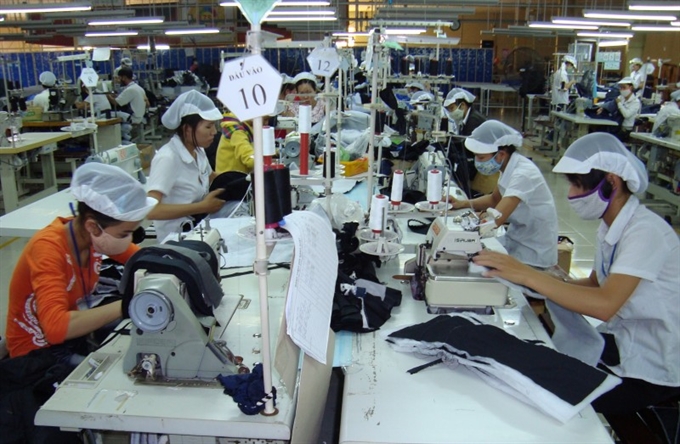 Society
Society

More than half the Vietnamese employees polled in a recent survey conducted by Việt Nam General Confederation of Labour said they cannot make ends meet with their wages, even with the addition of pay for extra hours and allowances.
 |
| More than half the Vietnamese employees polled in a recent survey conducted by Việt Nam General Confederation of Labour said they cannot make ends meet with their wages, even with the addition of pay for extra hours and allowances. — Photo vieclamvietnam.gov.vn |
HÀ NỘI — More than half the Vietnamese employees polled in a recent survey conducted by Việt Nam General Confederation of Labour said they cannot make ends meet with their wages, even with the addition of pay for extra hours and allowances.
The survey interviewed workers in 60 enterprises in nine provinces and cities of four wage regions nationwide.
About 37.8 per cent of those polled said they could hardly live on their wages, and 14.2 per cent said the wages are “not enough to survive”.
Only 33.8 per cent said the wages are just enough to live and 14.2 per cent said they could save money.
The surveyed firms agreed that the basic wages they pay are 33 to 44 per cent higher than the minimum wage set by the Government in 2016 and the minimum wage increase this year has not affected their production and business.
The National Wage Council (NWC) last year agreed on a hike of region-based minimum wages in 2016 by 12.4 percent. Accordingly, minimum wages rose to VNĐ3.5 million (US$156), VNĐ3.1 million ($138), 2.7 million ($120) and 2.4 million ($107), respectively, for workers in regions I, II, III and IV.
However, up to 62.3 per cent always ask to work overtime in order to augment their base pay, the survey revealed.
The survey also pointed out that the minimum wage changes this year have cut down allowances given to about 5 per cent of workers.
Mai Đức Chính, vice chairman of the Việt Nam General Confederation of Labour and NWC vice chairman said that many enterprises were paying less allowances to offset the wage increases.
“The income in the leather footwear sector for each worker in southern Đồng Nai Province reached VNĐ6-7 million ($267-311) per month, but the firms pay social insurance for workers as if their incomes are only VNĐ3.6-3.7 million ($160-165),” he said. Normally the rate of social insurance is 26 per cent of the worker’s income - so these firms avoid paying a higher premium for social insurance by stating that the works only earn VNĐ3.6-3.7 million.
In a related move, the NWC this week also agreed to raise the minimum wage in 2017 by 7.3 per cent in the private sector, which equals an extra VNĐ180,000-250,000 ($8-11) a month, depending on the region. — VNS




